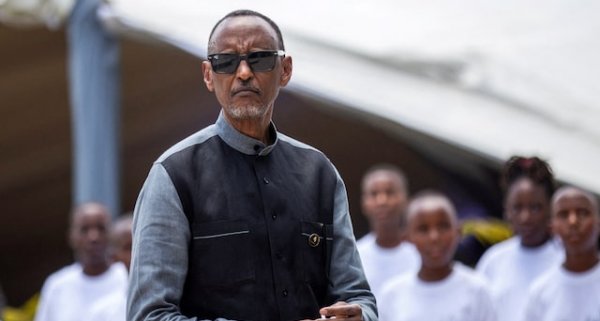Kagame, who spoke to reporters in Kigali, the capital of his country, said that if Kinshasa does not speak directly to the rebels it means there is no will to find a political solution to the conflict.
The M23 (March 23 Movement) is the most important of more than 100 armed groups fighting for a foothold in the mineral-rich area near the DR Congo's border with Rwanda, where more than a million people have been displaced by last year's fighting. .
Last month, the rebel movement seized the towns of Katale and Masisi, the latter located 80 kilometers west of the regional capital, Goma, a strategic entry point into the interior of the DR Congo, Angola's neighboring country.
With these latest actions, the M23 has expanded its control over the region bordering Rwanda.
DR Congo accuses Rwanda of supporting M23 and has repeatedly rejected Kagame's advice to negotiate with the rebels.
United Nations experts estimate that there are around four thousand Rwandan military personnel in the DR Congo.
The M23 rebels came to prominence about a decade ago when their fighters took over Goma, which borders Rwanda.
Its name derives from the peace agreement of March 23, 2009, which the rebels accuse Kinshasa of not implementing.
After lying largely dormant for a decade, M23 re-emerged in late 2021 and has since seized vast swathes of territory in eastern DR Congo.
In July 2024, Kinshasa signed a ceasefire with the M23, which came into effect in August, but fighting resumed.
In addition to negotiating with the M23 leadership, Kagame said the Democratic-Congolese authorities also have to deal with the threat to Rwanda's national security arising from the presence in the DR Congo of another armed group, the FDLR.
Rwandan authorities say the FDLR, whose members include alleged perpetrators of the 1994 Rwandan genocide, is part of the DR Congo army.
“The FDLR issue has to be answered,” Kagame said, accusing the DR Congo of persecuting its own people and forcing them to take refuge in Rwanda.
Although M23 leaders say they are committed to protecting civilians, their attempts to seize cities have caused widespread panic and fear, prompting local residents to flee in their thousands.
Last February, the US State Department for the first time publicly described M23 as an armed group “supported by Rwanda” and urged that country to “immediately withdraw all personnel from the Rwanda (Congo) Defense Force and remove its surface-to-air missile systems”.
UN experts have previously said they had “solid evidence” that members of Rwanda’s armed forces were conducting operations in the country in support of M23.







